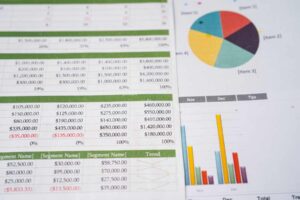From our friends over at Vanguard, discover the powerful insights from the late Daniel Kahneman on how we make investment decisions and understand our biases.
A lasting legacy from one of the pioneers of behavioural economics.
We live, for better or worse, in the age of influencers. So, it is timely as investors to take the time to reflect on the positive influence on our understanding of investor behaviours of the late U.S. academic psychologist, Daniel Kahneman.
Kahneman died, aged 90, in March after a lifetime of work devoted to understanding the way we make decisions, the biases involved, and effectively establishing a new field of academic study now known as behavioural economics.
What the work Kahneman and his long-time research partner Amos Tversky did was challenge one of the foundations of economics – that human beings will fundamentally make rational decisions. The ground-breaking feature of their work was to be able show systematically that people would make what economists regarded as irrational decisions based on the way information was presented to them.
The paper that saw Kahneman awarded the Nobel Prize in Economics in 2002 (Tversky had died some years earlier) was titled Prospect Theory and it delved into why we value gains and losses disproportionately. It really set the scene for the new discipline of behavioural economics, and in practical terms the development of “nudges” where decisions are framed to make positive use of our emotional biases.
Two different systems
His best-selling book Thinking, Fast and Slow took a deeper dive into the two different systems we use in making decisions. System one being fast, efficient, probably over-confident and error prone. System two being slower, research heavy, and full of doubt.
In a practical sense the two systems work together – system one identifies the dessert as a delicious treat, while system two flags calories and longer-term health benefits of going with fruit.
For investors there are some basic lessons out of Kahneman/Tversky’s work. Essentially we are not that well wired to make rational decisions, particularly around financial risks. Their work quantified that it hurts roughly twice as much when we, for example, lose $100 compared to the pleasure we get when we make $100. And why, when given a choice of taking $100 for certain versus a 50/50 chance of winning $200, most people will take the $100.
The research highlighted inherent biases that we are prone to, and in particular how important the framing of a question or proposition is in the decision-making process.
Practical learnings
The lasting impact of the Kahneman/Tversky work was how two academics trained as psychologists fundamentally influenced the study of economics and resulted in the fusing of both disciplines into behavioural economics, which has resulted in some practical, useable learnings for investors of all persuasions.
A favourite podcast – Hidden Brain – recently broadcast extracts from interviews done with Kahneman some years ago. There were some classic comments – and humour – but this quote perhaps captures the essence of what we can all learn from Kahneman’s work: “The stories about the past are so good that they create an illusion that life is understandable, and that’s an illusion. And they create the illusion that you can predict the future, and that’s an illusion.”
A powerful reminder from one of the world’s original thinkers about the challenges facing all investors when it comes to forecasting future returns.
Important information and general advice warning
Vanguard Investments Australia Ltd (ABN 72 072 881 086 / AFS Licence 227263) is the product issuer and the Operator of Vanguard Personal Investor and the issuer of the Vanguard® Australian ETFs. We have not taken your objectives, financial situation or needs into account when preparing the above article so it may not be applicable to the particular situation you are considering. You should consider your objectives, financial situation or needs, and the disclosure documents for any relevant Vanguard product, before making any investment decision. Before you make any financial decision regarding Vanguard investment products, you should seek professional advice from a suitably qualified adviser. A copy of the Target Market Determinations (TMD) for Vanguard’s financial products can be obtained at vanguard.com.au free of charge and include a description of who the financial product is appropriate for. You should refer to the relevant TMD before making any investment decisions. You can access our IDPS Guide, PDSs Prospectus and TMD at vanguard.com.au or by calling 1300 655 101. Vanguard ETFs will only be issued to Authorised Participants. That is, persons who have entered into an Authorised Participant Agreement with Vanguard (“Eligible Investors”). Retail investors can transact in Vanguard ETFs through Vanguard Personal Investor, a stockbroker or financial adviser on the secondary market. Retail investors can only use the Prospectus or PDS for informational purposes. Past performance information is given for illustrative purposes only and should not be relied upon as, and is not, an indication of future performance. This article was prepared in good faith and we accept no liability for any errors or omissions.
© 2024 Vanguard Investments Australia Ltd. All rights reserved.





